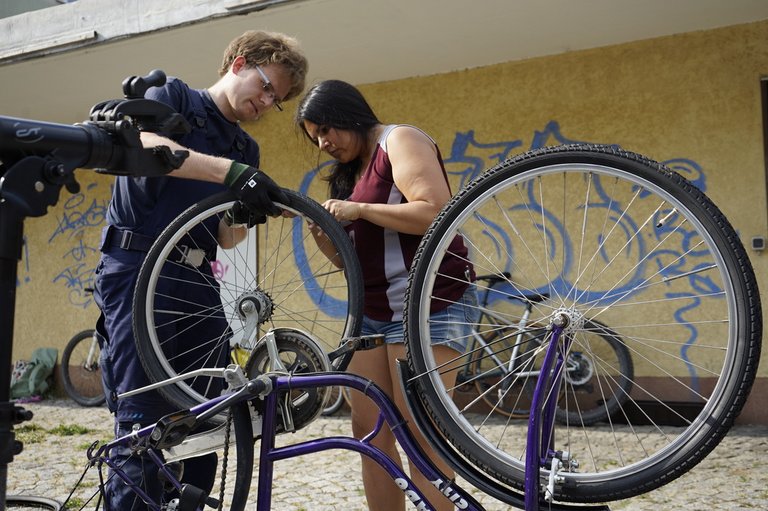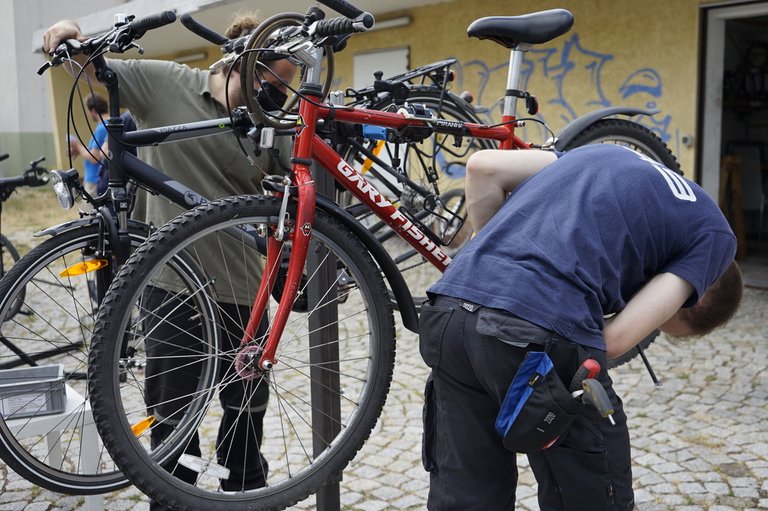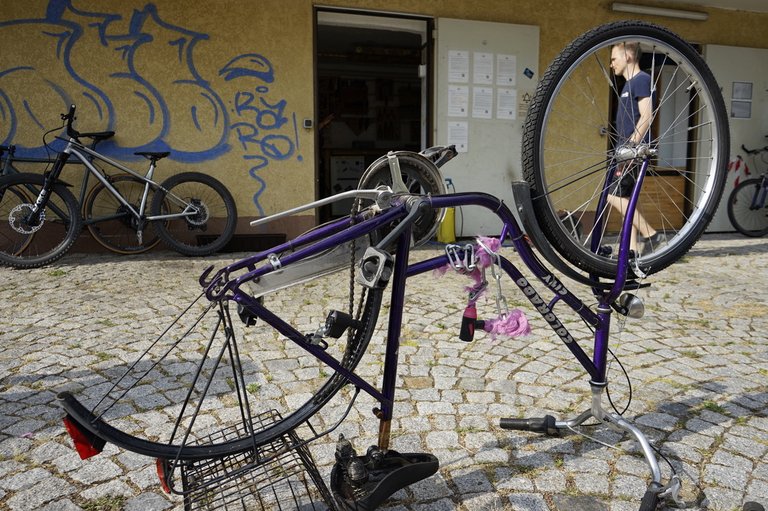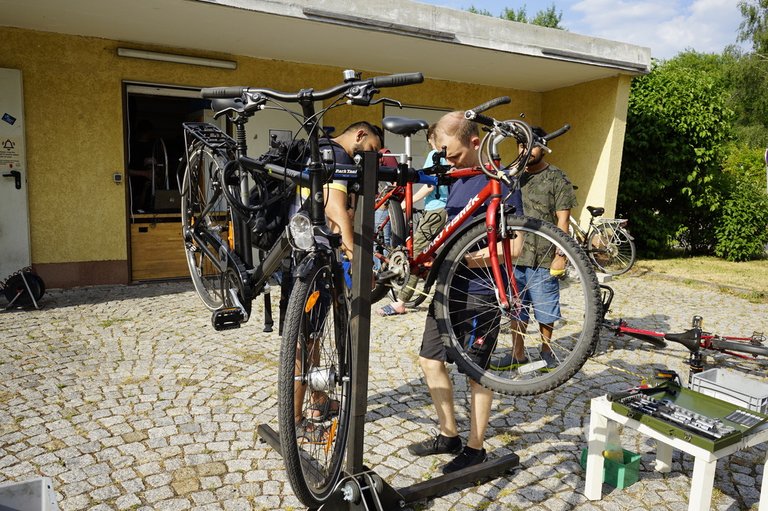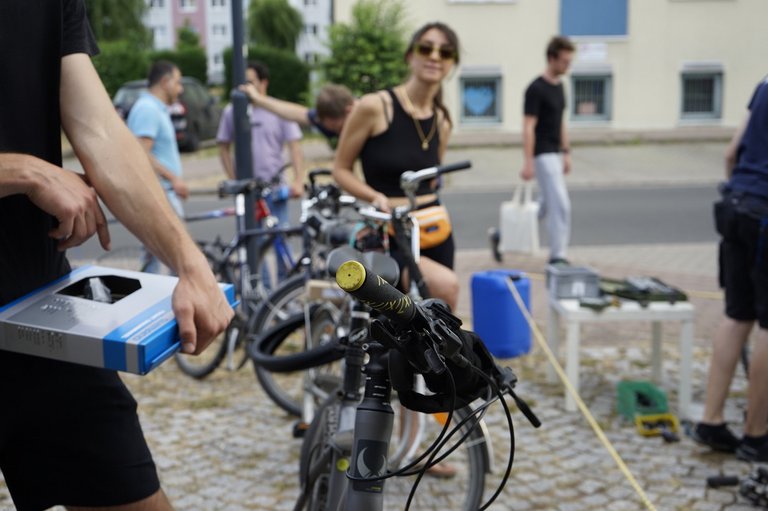We live in a time of a throwaway society - (over)fast disposal of material things, which we often use only briefly and then unnecessarily replace with something new. But there is a different way to be sustainable! The team of the bicycle workshop on the campus of the TU Ilmenau repairs old bicycles at low cost. Where others already give up and send the bikes to the scrap, the "Wunderrad" gives the bikes a second chance.
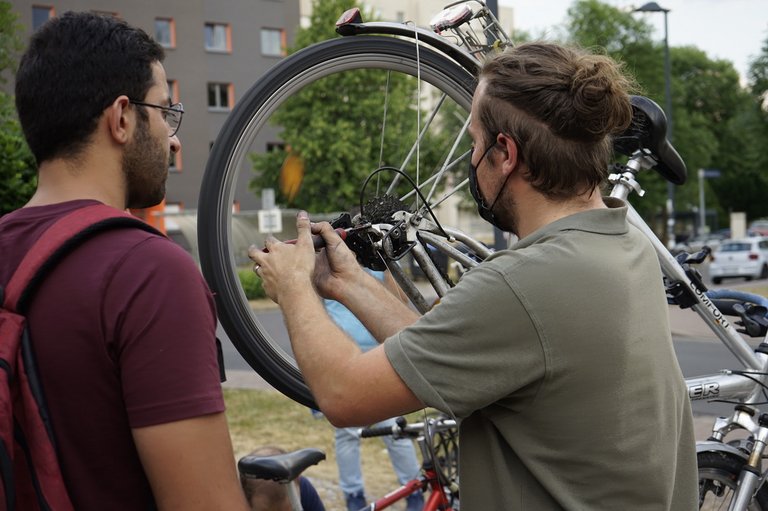
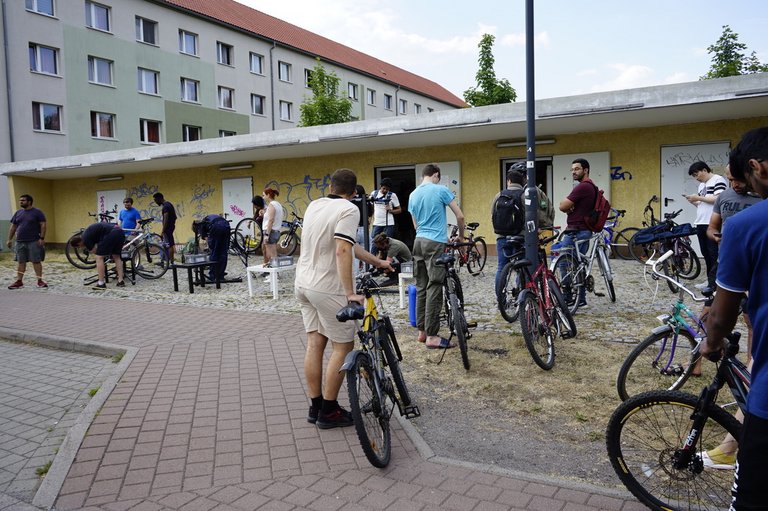
It's 5 p.m. on a Thursday afternoon in June. The sun is beating down on the small forecourt of the bicycle workshop, it is unusually hot for a summer day in Ilmenau. The smell of rubber, precision engineering oil and a little sweat is in the air. A rock playlist is playing softly in the background; "Bad Moon Rising" is currently blaring from the speakers. The team at the bicycle repair shop is busy working at six different stations to get customers' bikes back in shape. From screwdrivers to pliers to hex keys, a wide variety of hand tools lie around in an orderly chaos. The mood is productive and creative, but relaxed. People talk shop, laugh, or simply converse in several languages. And everyone has one goal: to get the bikes back in shape.
Every Thursday from 5 to 8 p.m., students, academic staff and anyone else interested come to the "Wunderrad" team with their metal patients on two wheels. The aim of the service: the team, consisting of ten volunteer students, offers visitors the opportunity to repair bicycles at low cost, clean and maintain parts, or simply drop by to talk shop.
Fabian has been involved from the beginning:
In 2009, it started in the bike basement of House L, but due to fire regulations we had to move. A good alternative location was found in the former motorcycle garages opposite House D." The student has been responsible for the workshop since 2013 and built up a team in 2015 that has been growing ever since. "I was on my own back then, you can't do much there. Today we're a cool group
he says, beaming. The workshop has been well attended since this summer.
We are overrun
says Fabian with a laugh as he tightens screws. Indeed, people stand with their bikes right up to the street and wait patiently for their turn.
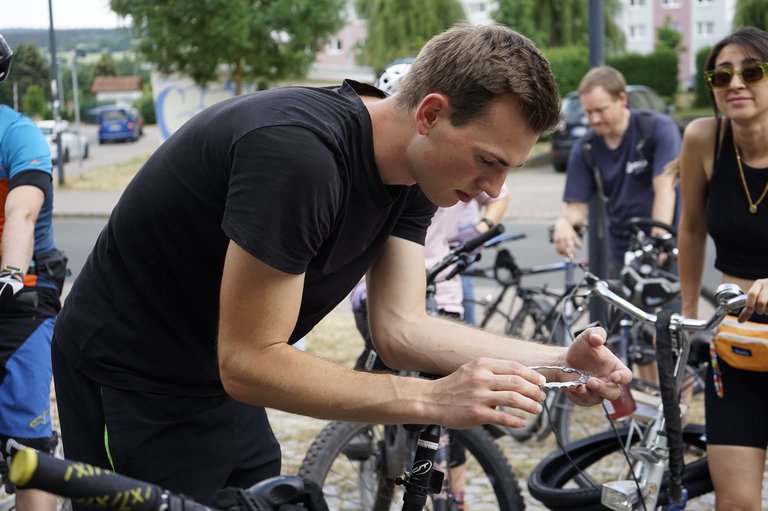
Julian, a master's student at Ilmenau Technical University, is also in line. He has had his mountain bike since 2014, and the first problems are slowly appearing.
My crankset is already pretty old and needs to be replaced
he says as he casually leans on his bike. It's his first time at the bike repair shop, and he's surprised at how busy it is. The 22-year-old thinks the offer is great:
I'm super happy, otherwise I'd have to go to some other workshop, drop my bike off there and pay something. I also wouldn't see for myself how the repair works. This way I can learn something and maybe even try it myself next time at home.
The principle of the bicycle workshop is simple and, above all, sustainable: Instead of buying a new bike, they try to get the last out of the old bikes by using used spare parts. Fabian is proud of the concept: "We do things that a professional workshop would send you away for. Bikes come in, and some of them are in a pitiful state. But we take care of them because we want to keep people mobile. We have the time and it costs nothing." Being mobile is also important to Julian: "I ride my bike a lot to the university, here in Ilmenau it's my main means of transportation." He and his mountain bike have now taken their turn and are standing at one of the stations. Using a special tool called a crank puller, he removes the crank of his bike and installs the new chainring.
The spare part is used, but still in good condition
Julian explains as he cleans the sprocket with a toothbrush and cleaning agent.
Max works at one of the six stations; he has been part of the Wunderrad team since 2016. The student's work clothes are dirty, his palms completely black - Max has been working through since 4:30 p.m., there is almost never time for a short break. Only around 9 p.m., after cleaning up, can he breathe a sigh of relief and enjoy a cold beer from the in-house refrigerator. Satisfied, with a slight smile on his lips, he stands with his colleagues and looks happily into the workshop:
For me, the bicycle workshop is a place of relaxation and also somehow a therapy room." Fabian leans against the wall next to him and adds, "It's the world in miniature. Everyone comes, regardless of nationality, culture or language.
They all have only one thing in common: Their bike is broken. And it wants to be patched up again with a lot of love, a little flair and a dab of creativity before it ends up on the next scrap heap. For a little more sustainability in this throwaway society, because isn't cycling the mobility of the future?
Report: Eva Seidl


